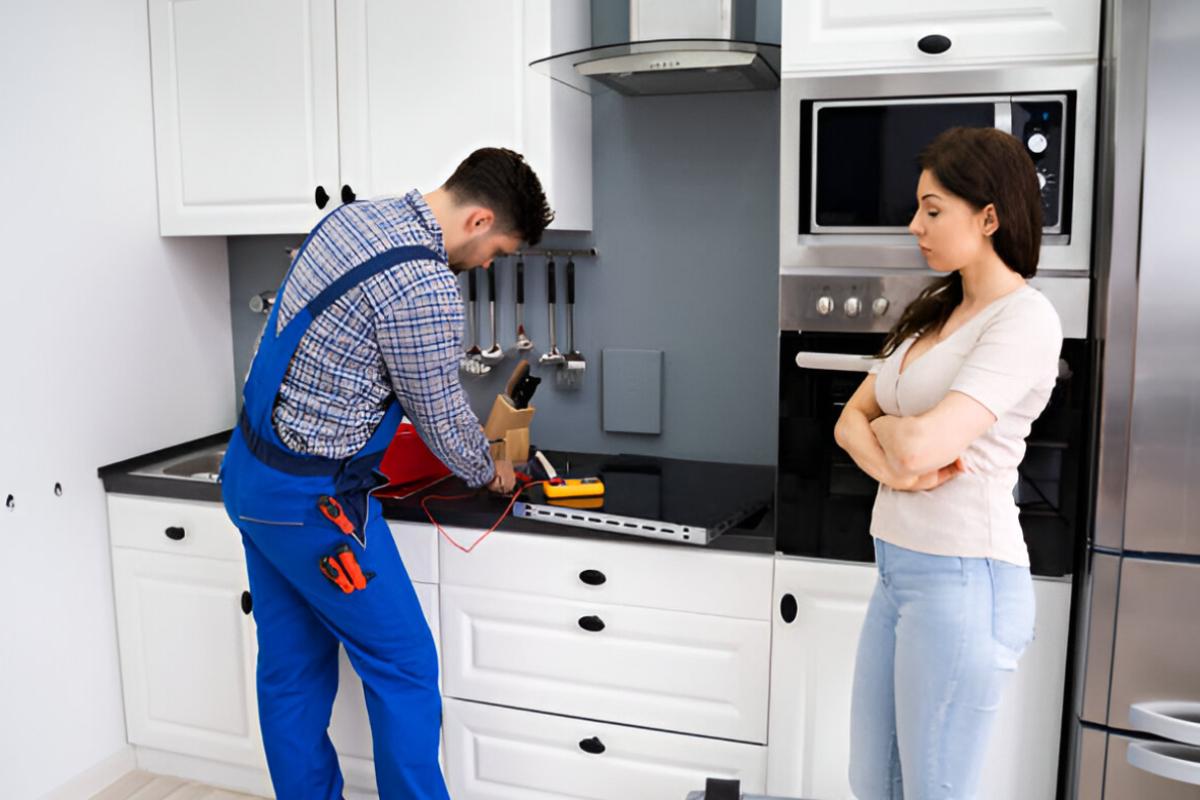Your home is more than just four walls; it’s a complex system working behind the scenes to keep your life running smoothly. The electrical wiring powers your devices, the plumbing delivers clean water, and the HVAC keeps you comfortable year-round. But what happens when these essential systems show signs of trouble? Ignoring the warning signals can lead to costly repairs or even unsafe living conditions. Here’s how to know when it’s time to call in a pro.
Table of Contents
1. Flickering Lights or Electrical Outages
Have you noticed your lights flickering, dimming, or outright shutting off for no clear reason? While it might seem harmless, this is often an indicator of a bigger issue. It could be something as simple as a loose bulb or something much more serious like faulty wiring or overloaded circuits. Either way, don’t ignore it.
Other signs of electrical trouble include:
- Frequent circuit breaker trips – If your breaker keeps tripping, it’s not normal. It could mean your electrical panel is overloaded or there’s a short circuit somewhere.
- Burning smells or scorch marks – These are red flags that should never be ignored, as they may indicate electrical overheating and a fire risk.
- Outlets or switches that feel hot – This is another warning sign that something is wrong behind the scenes.
Electrical problems are best left to licensed electricians, such as Milestone Electric, A/C, & Plumbing. Attempting a DIY fix can not only worsen the issue but also be dangerous. Save yourself the hassle and call up the pros!
2. Water Leaks or Low Water Pressure
Your plumbing system is designed to work seamlessly, delivering water where you need it and draining waste away efficiently. When things go wrong, the symptoms often creep up on you. Have you spotted a dripping faucet or a slow drain? These small issues can signal larger problems.
Pay attention to these signs:
- Sudden drops in water pressure, especially if it affects the whole house.
- Unexplained increases in your water bill, which could point to hidden leaks.
- Water pooling around the base of appliances like your water heater or washing machine.
Sometimes, a slow leak isn’t visible until it causes serious damage, such as water stains on ceilings or walls. If you suspect a plumbing problem, don’t wait—it’s better (and cheaper) to address it early.
3. Your HVAC System Is Struggling
Your heating, ventilation, and air conditioning (HVAC) system plays a key role in maintaining your home’s comfort. But even the most reliable systems don’t last forever.
Here’s how to know something’s wrong:
- Unusual noises – A loud banging, rattling, or screeching sound coming from your unit isn’t just annoying; it’s a sign of trouble.
- Inconsistent temperatures – Are some rooms too hot while others stay chilly? This could indicate ductwork issues or a failing thermostat.
- High energy bills – A sudden spike in energy costs might mean your system is working harder than it should, possibly due to worn-out components or poor efficiency.
Routine maintenance can prevent many of these issues, but when problems persist, a professional inspection is the safest bet.
4. Slow Drains and Sewer Smells
Dealing with slow-moving drains is frustrating enough, but if it’s accompanied by unpleasant odors, you could be looking at a more serious issue. Sewer smells are often a sign of a blockage or a problem with your home’s venting system.
Signs to watch for include:
- Multiple drains clogging at once, which could mean a main line blockage.
- Gurgling noises from your drains or toilets, indicating trapped air in the pipes.
- Wet spots in your yard, suggesting a possible sewer line leak.
These problems require specialized tools and expertise, so don’t hesitate to contact a plumber.
5. Unusual Sounds or Leaks in Your Water Heater
Your water heater works quietly in the background, but when it starts making noises, it’s time to pay attention. A rumbling or popping sound often means sediment has built up inside the tank. While flushing the tank might solve the issue, persistent noises could indicate the heater is nearing the end of its life.
Other signs your water heater needs attention:
- Rusty or discolored water when you turn on the hot tap.
- Water pooling around the base of the unit, which could mean a crack or leak.
- Inconsistent hot water supply or no hot water at all.
Water heaters don’t last forever—most need replacing after 10–15 years. If yours is showing signs of age, it might be time to explore your options for a new, more efficient model.
Keep Your Home Running Smoothly
Your home’s systems work hard every day to keep you safe and comfortable, but they’re not invincible. By recognizing these common warning signs, you can take action before small problems become expensive disasters.
If you’ve noticed any of these issues, it’s always better to call in a professional. Whether it’s your electrical, plumbing, HVAC, or water heater acting up, an expert can diagnose the problem and provide a solution that keeps your home running smoothly. When it comes to home maintenance, staying proactive is the key to avoiding headaches down the road.

